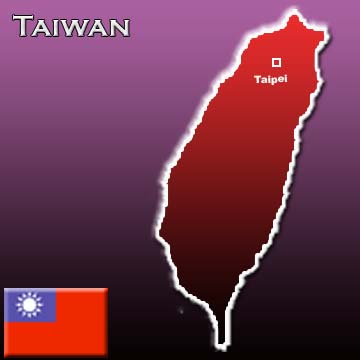Taiwan leader wants Taipei-Beijing dialogue to build mutual trust
 Taipei - Taiwan President Ma Ying-jeou said Friday that the up-coming Taipei-Beijing dialogue is intended to build mutual trust and is vital for Taiwan's survival.
Taipei - Taiwan President Ma Ying-jeou said Friday that the up-coming Taipei-Beijing dialogue is intended to build mutual trust and is vital for Taiwan's survival.
Ma made the remark while receiving the Taiwan delegation ahead of the talks to be held in Nanjing, China, Friday through Saturday.
Ma said that in the past 11 months since he took office, Taiwan's Straits Exchange Foundation (SEF) and China's Association for Relations across the Taiwan Straits
(ARATS) have been building mutual trust.
"This mutual trust should not exist only between Taiwan and China, but should also exit between Taiwan and the United States, and Taiwan and Japan," he said.
"The work we are doing is not only directed at China. Our focus is on the whole world. We lost too much time in the past eight years (under former president Chen Shui-bian). So the government must catch up with the steps of world. The whole world is changing, so Taiwan cannot stick with old ways and stare at the sky from the bottom of a well like a frog. If we continue to isolate ourselves, there will be no way out for Taiwan," he said.
Regarding Taiwan-China talks, Ma said the two sides should solve issues related to people's livelihood first and tackle difficult issues later.
"It is just like the arithmetic test for primary school pupils. They answer simple questions first and difficult questions later," he noted.
At a news conference afterwards, SEF Secretary-General Chiang Ping-kun, who will be Taiwan's chief negotiator at the Nanjing dialogue, said he will try his best to make the talks successful.
"My main task is to sign the pacts and to decide the topics for the next dialogue. I will try my best to get the best terms for Taiwan," he said.
Taiwan and China have been split since the end of the Chinese Civil War in 1949, but held a historic dialogue in Singapore in 1993 and several follow-up talks under the dialogue's framework afterwards.
China halted the talks in 1995 to retaliate against former president Lee Teng-hui's advocating Taiwan independence, and refused to re-open the talks during the
2000-2008 term of ex-president Chen Shui-bian, who was also labeled as a separatists by Beijing.
China agreed to resume the dialogue only after Ma, from the Chinese Nationalist Party, took office in May 2008 as Ma pledged to seek peace with China and would not promote Taiwan independence.
So Taiwan and China held their second dialogue in Beijing in June 2008, agreeing to open weekend charter flights to let Chinese tour groups to visit Taiwan, and held the third dialogue in Taipei in November 2008, which expanded weekend charter flights to daily charter flights and opened sea links across the Taiwan Strait.
The 4th dialogue will be held between SEF Secretary-General Chiang Ping-kun and ARATS Chairman Chen Yunlin.
On Saturday, Chiang and Chen will sign pacts on financial cooperation, cross-strait criminal investigation and regular charter flights.
They will also issue a statement on the consensus on allowing Chinese investment coming to Taiwan and announce the topics to be discussed at the next dialogue, to be held in late 2009 in Taiwan.
Many Taiwan scholars see the up-coming dialogue as a positive step in cross-strait relationship, but warned that it will take a long time before Taiwan and China can have mutual trust.
"The up-coming dialgoue will achieve some symbolic results, like the signing of some agreements. But when it comes to implementing the agreements, may it be judicial cooperation or granting Taiwan airlines the right to extend their flights from China to another country, it will touch on Taiwan's sovereignty," Tsai Wei, a professor from the Chinese Culture University, told the German Press Agency dpa.
"China does not accept Taiwan's sovereignty, and that will remain obstacle to cross-strait relationship," he said. (dpa)